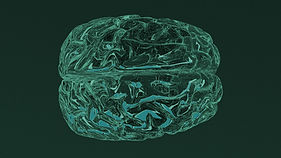
.jpg)


RESOURCES AND NEWS
There are more than 120 different types of brain tumors in need of treatment advances. Brain Cancer is fast becoming the number one cancer related cause of death in children under the age of 19.
The likelihood of developing brain cancer in your lifetime is less than 1%. About 24,000 adults and less than 5500 children under the age of 19 will receive a brain tumor diagnosis in 2024.
Because of the numerous types of brain tumors , it has been difficult to address the quality and quantity of life for person diagnosed with brain cancer. Only 4 drugs and one device have been approved by the FDA.
BRAIN HEALTH
Brain health is a critical piece of your overall health. It underlies your ability to communicate, make decisions, problem-solve and live a productive and useful life. Because the brain controls so much of your daily function, it is arguably the single most valuable organ in the human body.

SO WHAT SUPPORTS A HEALTHY BRAIN?
Exercise
Regular exercise has been shown to slow age-related brain deterioration and maintain cognitive abilities that typically decrease with age. Exercise also helps lower blood pressure, avoid vascular disease leading to stroke and helps maintain a healthy supply of blood pumping to the brain. Exercising is as easy as going for a walk, playing a sport or attending an exercise class, among many others. Mental exercise is just as important as physical exercise. Examples of mental exercises include logic-strengthening education and puzzles. Games such as chess and sudoku use strategic thinking, making them mental exercises as well.
Sleep
Sleep plays an important role in brain health. Humans spend about one-third of each day sleeping, and sleep is key to brain health. Sleep plays an important role in the function of the brain, the immune system and many other systems in the body. Sleep keeps you sharp, focused and able to make thoughtful decisions. While different age groups require different amounts of sleep, the general recommendation is around six to seven hours a night. This consistent, restful sleep gives your brain time to dispose of metabolic waste and optimise memory.
Access to Care
Finally, the availability and accessibility of care and exposure to preventative programs are important for brain health. Access to care makes it possible to catch issues early, ensure proper treatment and prevent further health issues. When healthcare is not accessible, brain health is impacted.
Diet
In the same way that diet is important for the entire body, it’s important for the brain. A balanced diet that includes a variety of fruit, vegetables, protein and whole grains nourishes the body and brain. A diet rich in processed foods, salt and refined sugars, however, can promote inflammation and vascular disease, resulting in tissue damage.
Environment
Your environment can also influence brain health. Environmental toxins include contaminants in water, food and the air. These toxins can all lead to neurological issues such as stroke, neurodevelopmental and neurodegenerative disorders.
Another type of environmental risk is repetitive or major head trauma. Caused by accident or in extreme sports, head injuries create an injurious setting for your brain cells.
Reference: World Federation of Nuerology
Check out these other
great articles about nutrition and the brain
PATIENT RESOURCES
OFC AND OUR PARTNERS ARE COMMITTED TO SUPPORTING CHILDREN WITH BRAIN TUMORS. CHECK OUT SOME OF THE RESOURCES TO HELP YOU THROUGH YOUR JOURNEY

BRAIN TUMOR WEBSITES

RESEARCH & NEWS
THERE IS SO MUCH PROGRESS AND RESEARCH HAPPENING AS IT RELATES TO BRAIN TUMORS. CHECK OUT SOME OF THE CUTTING EDGE THERAPIES AND RESEARCH IN PLAY.
Advanced Research in brain & spinal cord tumors
National Cancer Institute researchers are working to improve our understanding of how to treat tumors that arise in the brain or the spinal cord (together known as the central nervous system, or CNS). Such tumors can be either benign (not cancer) or malignant (cancer). But the tissues of the nervous system are so important and so vulnerable that even some benign tumors may need urgent treatment.
Mimivax Trial is extending quality of life for GBM patients


Brain Tumor Types & Treatments
There are more than 120 types of brain and central nervous system tumors. Brain tumurs and spinal cord tumors can be benign or malignant. Read about the different types of tumors and their treatments.
Chemo vs. Target Therapies for Children
Targeted Therapies are proving to be a positive treatment for children with low grade gliomas
BRAIN TUMOR FACTS
Over 700,000 people in the United States are living with a brain tumor. Many of them are children under the age of 19. In fact, brain tumors are quickly becoming the number one cause of cancer related deaths in children under the age of age of 19. Check out some of the facts about brain tumors in general.
GLIOBLASTOMA
Glioblastoma is the deadliest form of malignant brain tumors.













